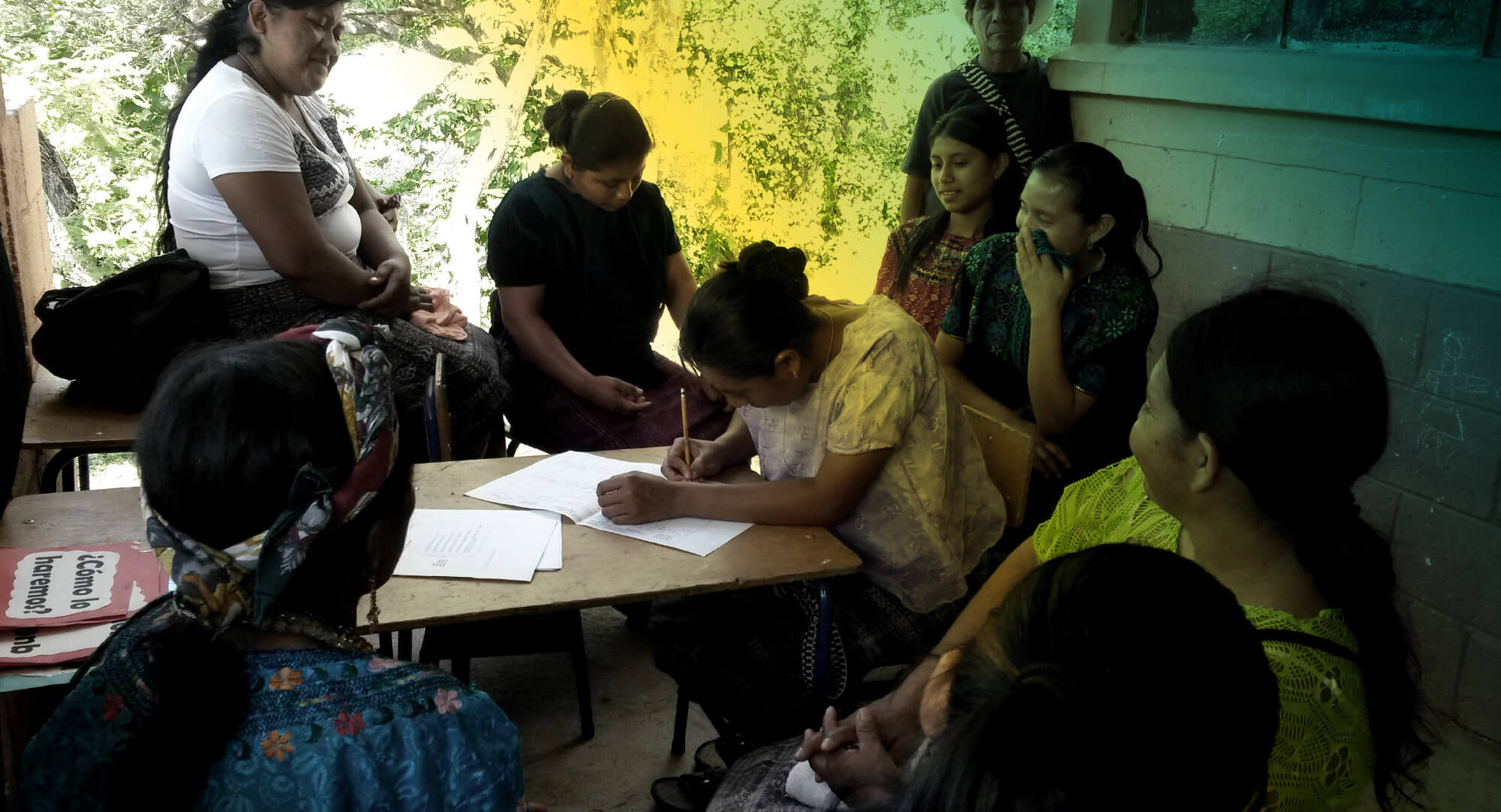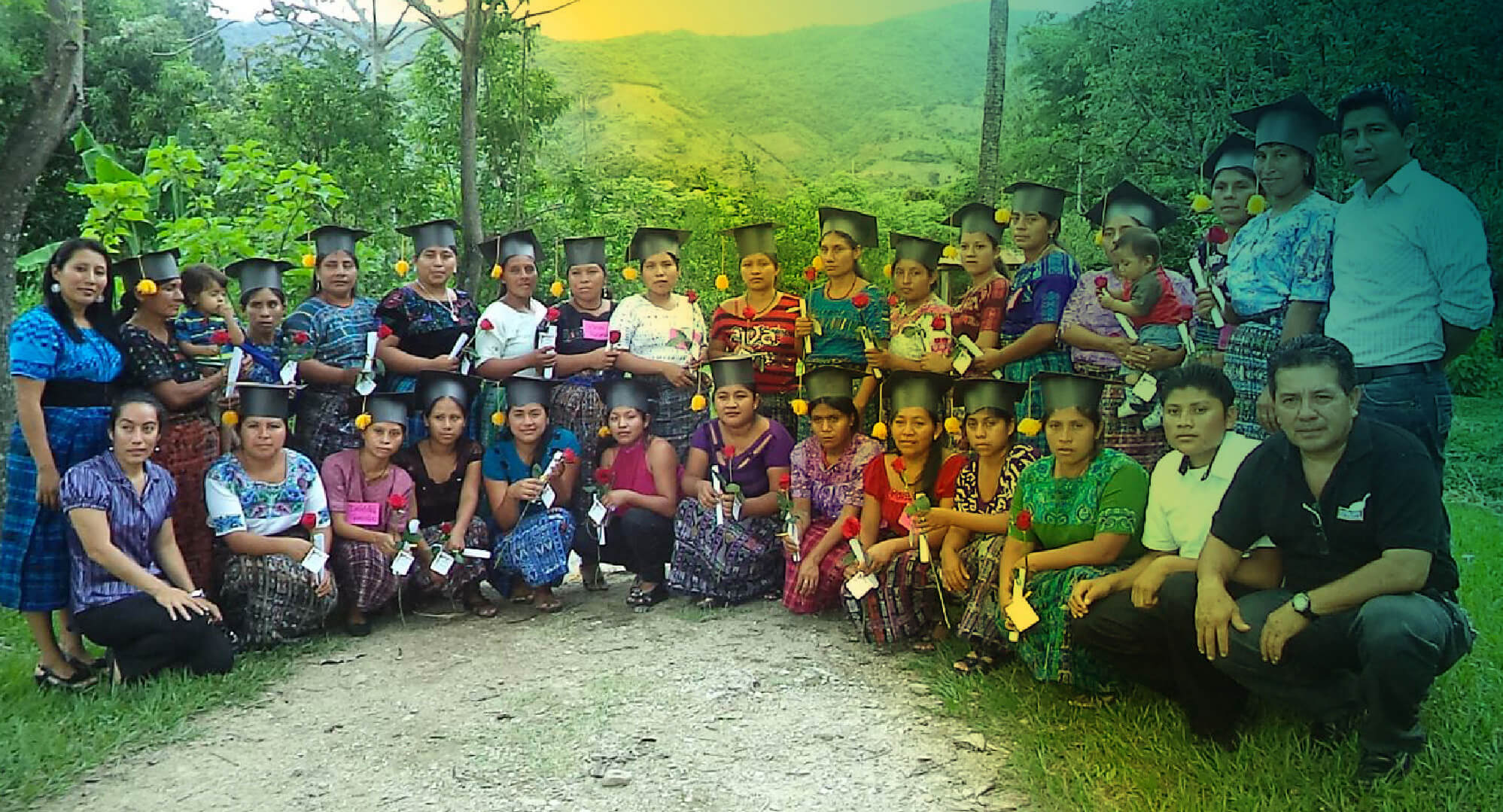Strong advocate for social development
The Guatemalan Sugarcane Agroindustry is a strong advocate for social development and plays an integral role in the country’s efforts to tackle social inequality and promote universal wellbeing. The opportunities and tools the industry provides its employees, their families, and their communities are creating more sustainable and inclusive citizens and societies, where social progress is possible for current and future generations.

Labor contracts
Sugarcane cutters sign labor contracts that inform them of their rights and obligations. At the beginning of each harvest season, the industry trains cutters regarding safety at work, personal hygiene and financial responsibility. This effort promotes the social responsibility and sustainability of the population, as well as the local communities to which they return after the season.

Educational and professional programs for workers
The sugarcane agroindustry takes a hands-on approach to expanding opportunities for lower income workers by offering educational and professional programs to sugarcane cutters during the harvest season. The cane cutters from the northern regions – who stay on the mills’ campuses during the harvest season – take advantage of the personal advancement trainings and classes offered.
The labor relationship between cane cutters and sugar mills is direct, subcontracting and intermediaries are not allowed. All have social security, benefits established by law and complementary services.

Occupational Health and Safety
Occupational Health and Safety is a top priority across the entire Guatemalan sugarcane agroindustry. It works towards greater wellbeing for its employees through the application of labor conditions designed to create a safe, healthy and productive workforce for everyone.
The industry strives to ensure a safe work environment and provides employees with additional services that go beyond the legal obligations, such as advocacy in public health, financial responsibility, training and education for personal advancement.

Public Health
The Guatemalan Sugarcane Agroindustry is committed to fight hunger and promoting healthy lifestyles by promoting food security and improved nutrition for all.
As pioneers in the fortification of sugar with Vitamin A, Guatemala has become a role model in addressing nutritional needs of developing communities. The fortification of sugar with Vitamin A (and iron in some cases) is one of the primary ways in which this goal is fulfilled. Since the fortification of sugar began in 1986, the rates of childhood blindness have declined, and now it is no longer considered a public health problem in Guatemala.
The Institute of Nutrition of Central America and Panama approves and validates the fortification of sugar, and it reported it a “success story.”
In some areas sugar in Guatemala has now been fortified with iron to help tackle anemia in specific local populations. This experience facilitated fortification programs in Costa Rica, Honduras and El Salvador with similar public health challenges.
Fundazucar was established in 1990 to invest in employees, their families and local communities to fuel long-term growth and prosperity. The Foundation and its integrated programs foster a relationship and create a direct link between the sugar businesses and the local communities where sugarcane is grown.
Fundazucar programs are primarily designed for the people and communities indirectly involved in the sugar industry, such as women, children, local community leaders and educators, and its efforts have been crucial to the transformation of rural life in Guatemala as it relates to improved education, municipal development and health. However, with a significant number of workers from the north of the country, the programs were also implemented in the zones of origin of the collaborators.
By empowering women and girls, as well as providing access to quality education and learning opportunities, the community building efforts of the Guatemalan sugarcane agroindustry contribute to the reduction of inequality and promote social mobility.
PROGRAMS

Better families
Better families: It is an innovative self-management model for women and families designed to empower women and promote food and nutrition security. Since its inception in 1998, more than 520,000 women have participated in the program and learned about public health, food, self-management, self-esteem and participation for the development of their communities.

PROCAPS
This program, aimed at teachers and principals to develop and improve teaching skills, knowledge and teaching planning that affect positive the learning and effective training of students. The program trains 100% of teachers from public schools in the departments of Escuintla, Santa Rosa, Suchitepéquez and Retalhuleu, an area in which sugar mills operate. The learning indicators for that region were higher than the national average in mathematics and reading, according to the Guatemalan Ministry of Education in 2014

Municipal Strengthening
Through this program, the sugar industry works with municipal and local authorities, community leaders, women, youth and churches to promote greater citizen participation and self-management to meet the needs of the local municipal population. The programs involve: local development through civil participation; basic sanitary infrastructure, among others.

Health
Fundazúcar has developed programs and initiatives specifically designed to improve health services in the Costa Sur region and focus on the wellbeing of the local communities. Mi salud es primera: directed to workers of the public health system Clínica de salud (Health Clinic): Fundazúcar has implemented programs and initiatives designed to improve health services in the southern region and focus on the well-being of local communities.

Generación 15-30
It is a program aimed at young people, which helps them to create their life plan.

Responsible Trade
Trains food vendors on issues of hygiene and corporate responsibility.









